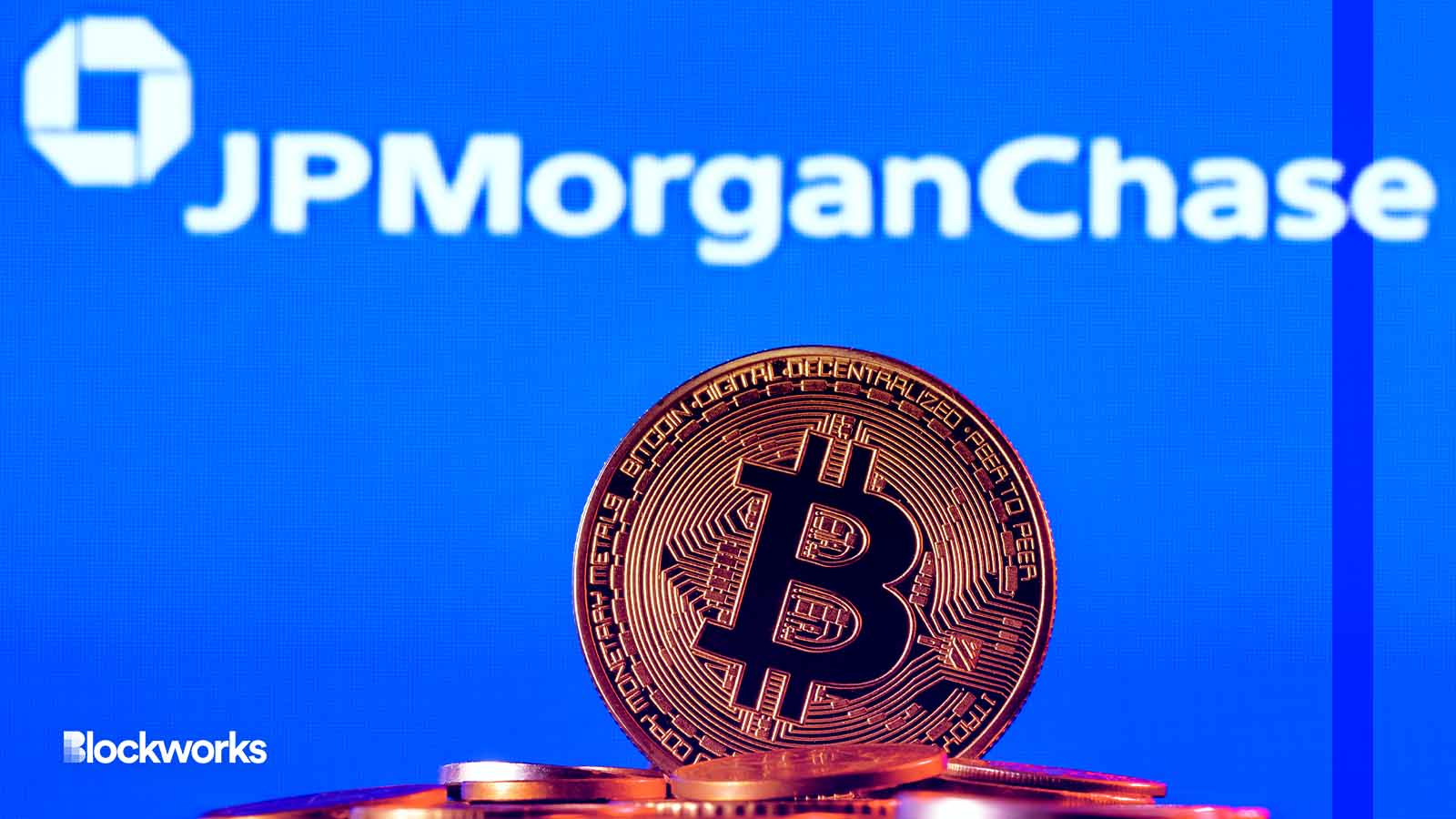Two financial heavyweights were involved in a milestone collateral transaction via a decentralized application by JPMorgan Chase.
BlackRock used the company’s new Tokenized Collateral Network (TCN) to tokenize shares in one of its money market funds, JPMorgan told Blockworks in an email. It then sent those tokenized interests to Barclays as collateral for an over-the-counter (OTC) derivatives trade between the firms.
TCN is a private blockchain application on JPMorgan’s Onyx Digital Assets platform. This is the first collateral settlement for a live client OTC derivative transaction that TCN has facilitated.
The ability to post money market fund shares as collateral without first redeeming to cash “offers the prospect of greater efficiency and stability in times of market stress,” according to JPMorgan.
Ed Bond, JPMorgan’s head of trading services, said in a statement that TCN reflects an investment in the future of collateral markets — noting that this first transaction demonstrates the power of tokenized assets.
Read more: TradFi, DeFi convergence continues through tokenizing real-world assets
“[Money-market funds] can now be mobilized and utilized in a more efficient way, unlocking new pools of liquidity to be used for margining,” Bond added.
The collateral between BlackRock and Barclays took one second to post — versus what could sometimes take one or more days, Ty Lobban, head of Onyx Digital Assets, said in a Wednesday X post. He called the trade “another first” with another of the firm’s blockchain-based apps.
“TCN on Onyx Digital Assets is now open for business for institutional clients,” Lobban said in the post. “We have started with tokenized MMFs [and] plan to expand to other collateral types in the future. We believe ultra fast collateral movement will bring huge value to the $25T collateral industry.”
JPMorgan launched Onyx Digital Assets in 2020. Its first application was facilitating intraday repurchase transactions to offer short-term borrowing in fixed income via the exchange of cash for tokenized collateral.
The company used the Polygon blockchain to trade tokenized cash deposits in November 2022. That trade was part of a broader pilot by the Monetary Authority of Singapore that also involved Singapore’s DBS Bank, Japan’s SBI Digital, Marketnode and Temasek.
Lobban noted during an Empire podcast last month that BlackRock was “looking to tokenize money market fund shares,” noting that global clients have shown interest in such features while “almost not caring that it’s blockchain.”
Asset tokenization has infiltrated traditional finance, as companies seek to reduce costs and boost efficiency. BlackRock CEO Larry Fink last year called the tokenization of securities “the next generation for markets.”
Matthew Collison noted that the blockchain-facilitated trade with BlackRock is “a terrific example of driving innovation in post-trade settlement.”
“The tokenization of money market fund shares as collateral in clearing and margining transactions would dramatically reduce the operational friction in meeting margin calls when segments of the market face acute margin pressures,” Tom McGrath, deputy chief operating officer of BlackRock’s cash management group, added in a statement. “We’re excited to work with JPMorgan and Barclays to improve market efficiencies through this first trade.”
 blockworks.co
blockworks.co
